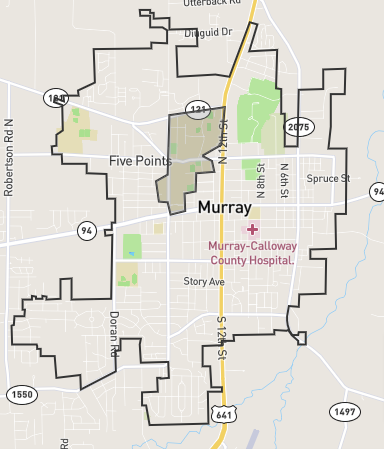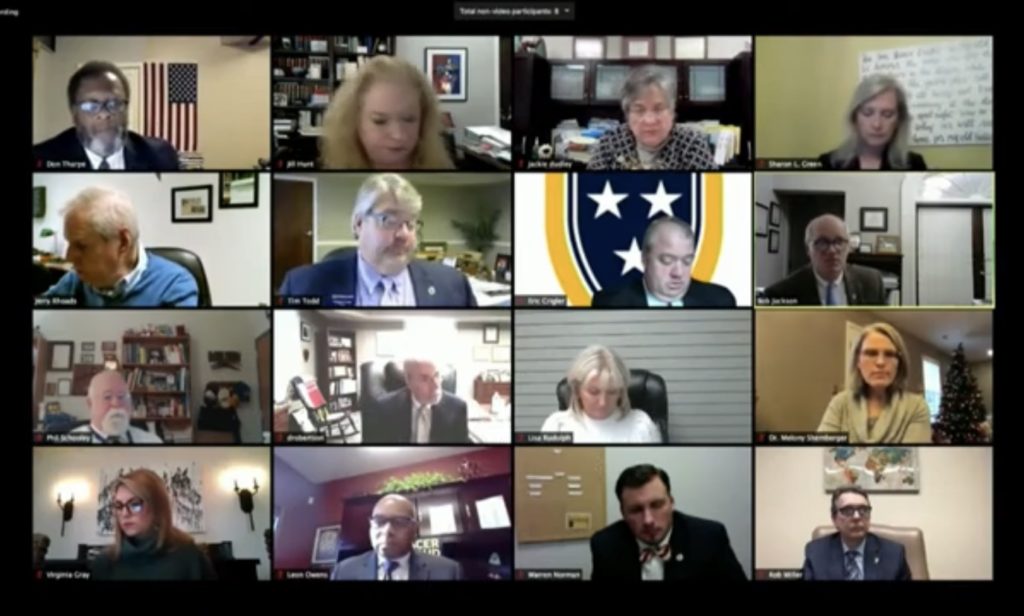
This is the first installment of a twelve-part series profiling the representatives who make final University decisions.
Every country has its governing body, every state has its representatives and every city has its council – the common thread is a role of leadership.
The Board of Regents, Murray State’s own governing body, occupies this role for the University. In the upcoming year the board will continue to shape the University, as it has always done.
Eleven members comprise the board, three constituent Regents from the University – a member of the staff, faculty and student body – and eight constituents appointed by the governor.
The eight appointed Regents have the duty of bringing perspectives based on their own experiences, knowledge that others from the University might not have. The political affiliation of each of the appointments is taken into account, as the board is meant to represent all equally.
The staff and faculty regents carry a three-year term; the student regent a one-year term and the appointed Regents are designated for six years.
The Board of Regents works in conjunction with the administration to set high-level policy for the University. Among their responsibilities are the approval of budgets, setting tuition and fees, approving administrative positions, granting tenure and promotion of faculty, reviewing the president’s contract and approving property purchases.
President Randy Dunn said the board has a tangible and direct impact on many important aspects of campus life. He said the Regents, after approving the annual budget of the University, decide which programs to fund versus those they may decide not to fund.
“The decisions of the board can have a pretty direct impact on the services and offerings that we provide at the University,” he said.
Dunn said the board has a responsibility as the stewards of the University, and believes they take very seriously their role and all they have been entrusted with.
Tom Denton, vice president of Finance and Administrative Services, said the Regents have several critical administrative tasks they must approve each academic year.
He said the board is crucial in setting policy, but there are conflicting goals.
“The board is trying to keep tuition and fees at a reasonable rate for students,” he said. “At the same time they want to provide high quality education.”
The board represents the students, faculty and staff of the University, but they also see the institution as a business. The conflicting goal arises in balancing the needs of Murray State’s community and treating the University as a business – meant to make profit.
Dunn said all boards have issues to wrestle with, oftentimes with competing values.
“I think that our board strives to find the right balance, so that – and they’ve
been clear about this in their strategic statements – they want to have among the best programs in the country, but they also want pricing that is among the lowest in the Commonwealth,” Dunn said.
Bonnie Higginson, vice president of Academic Affairs, said the current board has been very perceptive of the needs of the faculty. On Sept. 6, she said, the deans of each college will give presentations to the board members at a retreat.
“The board gets information from The Murray State News, press releases, etc., but this will give them a better look at the whole academic picture,” she said. “It will show them the programs we have that are successful and in high demand and the challenges we face.”
Higginson said the board did have one large common value, shared interest, and that value is in higher education, particularly Murray State.
Vice President of Student Affairs, Don Robertson, said the board of each state is different.
He said several states have one overall board for higher education. He said Murray State was lucky to have its own – filled with outstanding community and University leaders.
Robertson said the role of the student regent was of particular importance.
“I think it’s important to have the student perspective, and that’s really what the student regent provides,” he said. “I don’t know if students realize they have that voice. Now you have a student saying, as a student, this is how we see things.”
Jody Cofer, academic program specialist and Lesbian Gay Bisexual and Transgender coordinator, said the Board of Regents definitely has a direct impact on the University community. He said the board had a meaningful influence on him and the LGBT community especially.
“Murray State has made a number of advancements on the LGBT front that would not have been possible without support from across the University’s administration, which obviously includes the Regents,” he said. “A great deal of organizing was done recently to educate the campus community on LGBT issues, which led to the board updating the institution’s non-discrimination policy to include ‘sexual orientation.’”
Cofer said, over the past few years, a campus effort to create a new Diversity Plan took place. During the fall of 2011, the board adopted the principles of it. The plan, set forth by the President’s Commission on Diversity and Inclusion, names the LGBT community among the various constituencies defined as underrepresented.
Said Cofer: “I believe that these kinds of board decisions further the inclusive and affirming climate of Murray State for all of our students.”
Story by Chris Wilcox, News Editor.

































































































